Teaching
My teaching interests cover many fields of zoology and animal ecology, and I have taught courses in many different formats.
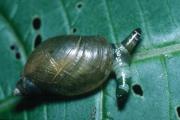 Field excursions
Field excursions
I have conducted dozens of field excursions to terrestrial and freshwater habitats for both beginners and advanced students and co-organized a field trip to Catalonia.
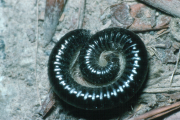 Animal Identification Courses
Animal Identification Courses
I have also taught many animal identification courses on molluscs, insects, spiders, and other arthropod groups at different levels. These courses usually include introductions to the biology and ecology of the respective invertebrate group.
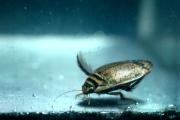 Functional Morphology of Insects
Functional Morphology of Insects
This course provides an introduction to the morphology of insects. More than 70 study objects are available from virtually all insect orders. The course also includes an introduction to the phylogeny and radiation of insects.
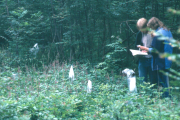 Practical Course "Terrestrial Ecology"
Practical Course "Terrestrial Ecology"
This course has three main topics:
- pollination ecology
- feeding & production ecology of glomerids
- population dynamics of insect herbivores.
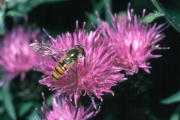 Biology and Ecology of Hoverflies
Biology and Ecology of Hoverflies
There are not many diverse insect taxa with which students can become reasonably familiar within the short time of a practical course. Hoverflies (Syrphidae) are an example.
Here I use hoverflies as study organisms to introduce students to various topics of animal ecology and practical ecological work. We start off with some identification exercises but soon turn to problems from the following fields:
- behavioural ecology
- physiological ecology
- production ecology
- population ecology
- community ecology
Some of the problems are tackled in a self-guided way by small groups of students, and students are also required to give short talks on some theoretically interesting topics which cannot be addressed by practical work during this course.
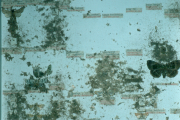 Ecology of Animal Communities: Ecological Diversity
Ecology of Animal Communities: Ecological Diversity
This course provides an introduction to the many ways of studying animal communities and to the mechanisms promoting diversity.
While HURLBERT (1971) felt that 'diversity' was a deplorably vague concept, vagueness has been increased still further by coining the all-inclusive (and best-selling) term 'biodiversity' (WILSON 1988).
In this course the focus is on 'ecological diversity' and techniques of describing and comparing diversity of animal communities are discussed. The course will therefore be particularly useful for students who are likely to conduct surveys for their diploma or doctoral theses, or later in their scientific careers. The course provides guidelines to
- the design of surveys,
- appropriate methods to evaluate results from such studies,
- available software packages suited to analyse data of this kind.
Students are required to do some homework and to give talks on selected papers.
References
Hurlbert, S.H. (1971): The nonconcept of species diversity: a critique and alternative parameters. Ecology 59: 67-77.
Wilson, E.O. (1988): Biodiversity.National Acad. Press, Washington.
Lectures
I have taught many lectures on 'Animal Ecology' and 'Biology of Terrestrial Invertebrates' as a stand-in for the holder of the chair for Animal Ecology, Prof. Dr. M. Schaefer.
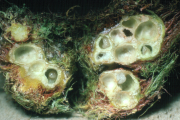 Biology and Ecology of Insect-Plant Relationships
Biology and Ecology of Insect-Plant Relationships
This lecture gives an up-to-date overview of the many mechanisms influencing the interactions between insects and plants.
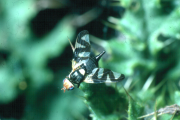
The focus is, of course, on relationships between insect herbivores and host plants but a few other topics are also addressed. Many examples from all insect orders in which herbivory occurs are discussed and these examples are used to demonstrate more general ecological patterns.
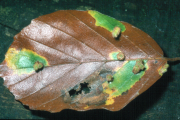 This is a list of some of the topics:
This is a list of some of the topics:
- herbivory in insects
- nutritional ecology
- plant defence
- coevolution
- multitrophic interactions
- community ecology
- macroecological patterns
- pollination ecology
- ant-plant-relationships
- insectivorous plants
- phytotelmata


 This is a list of some of the topics:
This is a list of some of the topics: